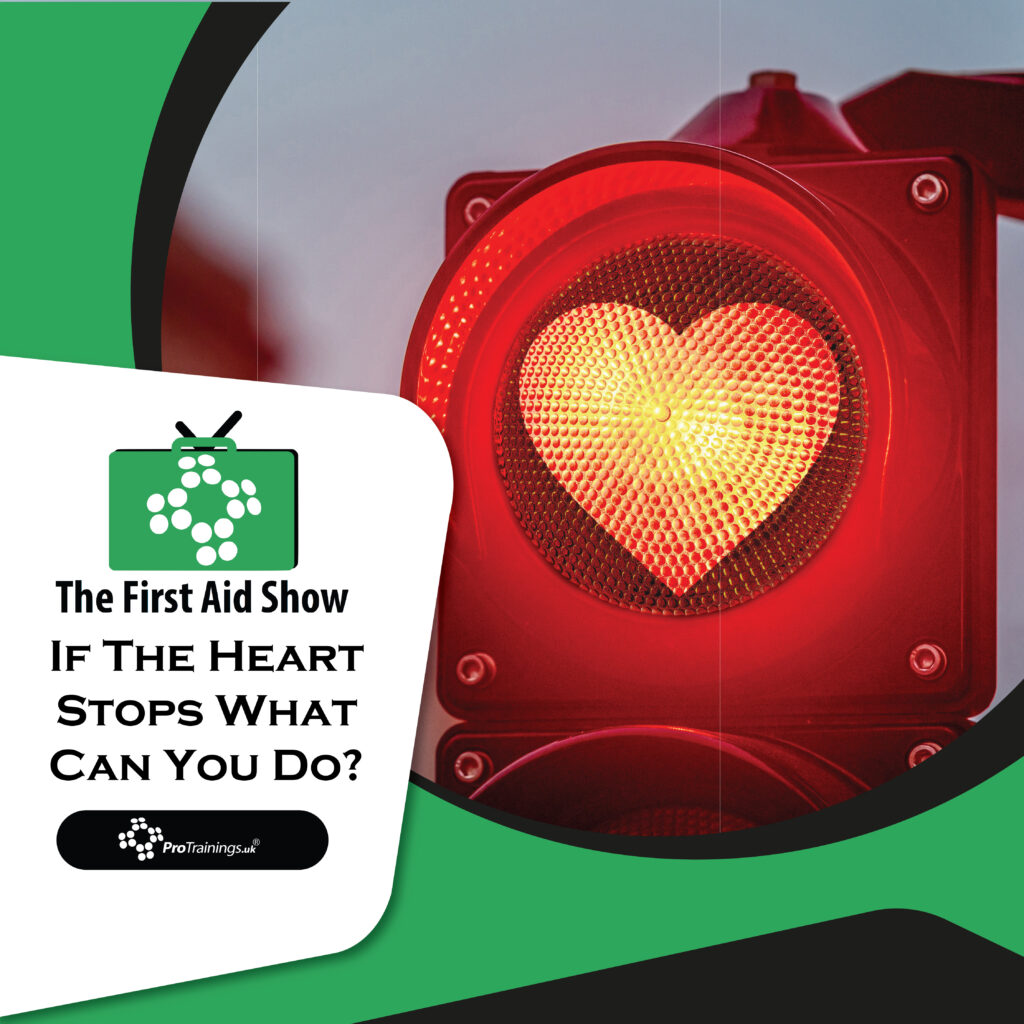If The Heart Stops, What Can You Do?
Welcome to this edition of The First Aid Show. In this video, we spoke to Dr. Filip Zemrack, a consultant cardiologist, while filming our ToBe-Heartsafe training course. We asked him an important question: If the heart stops, what can you do?
Recognizing A Cardiac Arrest
When someone collapses suddenly, it can be difficult to determine what has happened. They may stop responding, lose consciousness, and show no signs of breathing. In that moment, quick thinking and immediate action are essential. Recognizing a cardiac arrest early can be the difference between life and death.
Acting Fast Makes a Difference
So, if the heart stops, what can you do? The most important step is to start CPR immediately. This keeps oxygen flowing to the brain and vital organs. At the same time, someone nearby should call emergency services and find an AED (automated external defibrillator). Time is critical, and every second counts.
How to Perform CPR
- Check for responsiveness – Shake the person gently and ask if they are okay.
- Call for help – Dial emergency services and ask someone to get an AED.
- Start chest compressions – Push hard and fast in the center of the chest at a rate of 100-120 compressions per minute.
- Use an AED – If available, turn it on and follow the voice instructions.
Training Saves Lives
Although CPR is simple, it takes training and practice to do it effectively. Learning how to respond properly increases the chance of survival. Taking a first aid course can prepare you to act confidently in an emergency.
Final Thoughts
In conclusion, acting quickly when a heart stops is critical. Immediate CPR and early defibrillation give the best chance of survival. Knowing these lifesaving skills ensures you are ready to help when it matters most.


